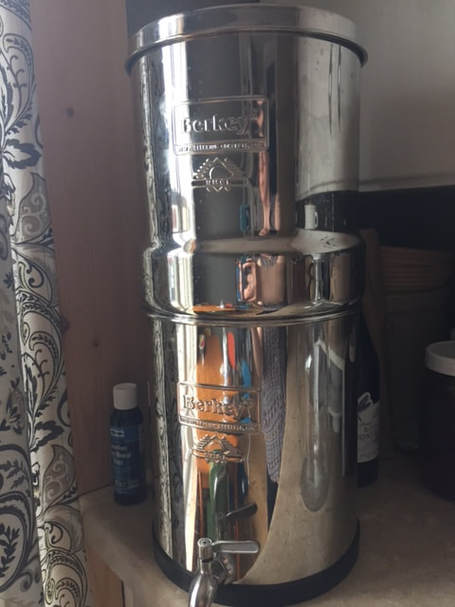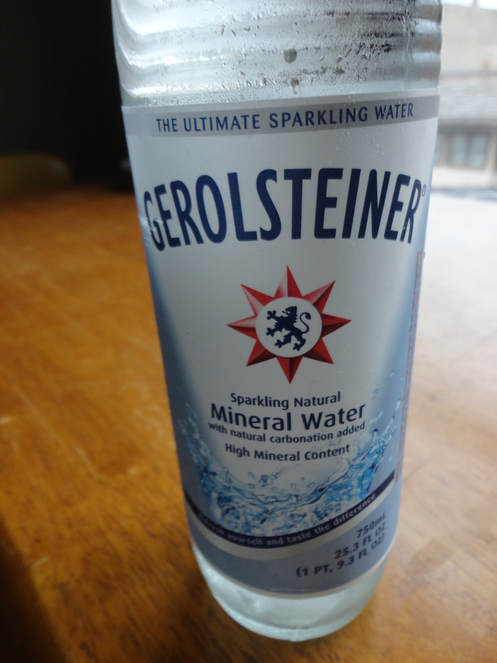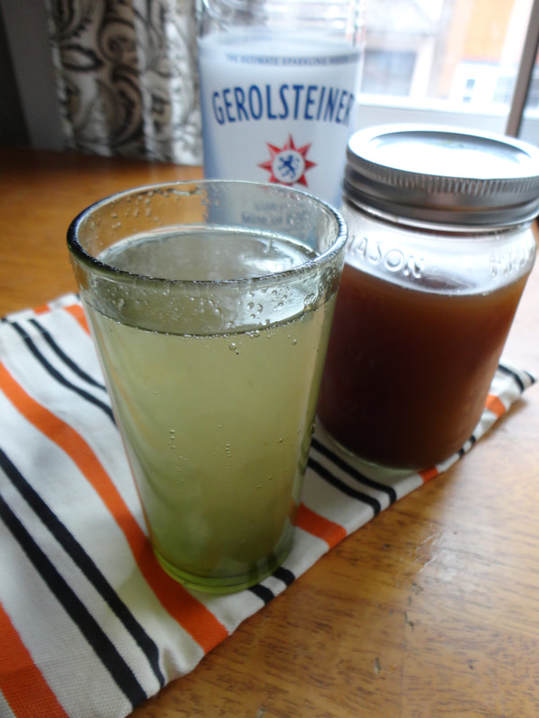|
We have all heard all of the nutritionists, doctors, and other health experts always saying to "drink more water" for our health. It promises to be the panacea that will fix any ailment and lengthen our lives, but just the command to drink more does not necessarily mean we are getting all the health benefits we could from our water. Getting enough water is essential for health and is necessary for most functions in the body. But it is important to get the right kind of water. Just like many foods and products that have been tampered with due to modernization, water is not just "water" anymore. The water we drink is usually more than simply H2O. Tap water is processed and treated, and is full of byproducts and chemicals. Of course, this is a necessary evil when you live in a municipality, since clean water is needed to keep people healthy and alive. But this comes with consequences, as many things are added that are not conducive to health, and needs to be filtered to remove these additives. In this post I will go into the different types of water and filtration systems, rather than the amount a perosn should drink per day. To me, what kind of water you drink is therefore just as important as how much water you drink. The least optimal sources of water to consume are tap/city water and bottled water in plastic containers. The chemicals put into treated city water include things such as chlorine, flouride, over-the-counter and prescription drugs, including birth control pills and anti-depressants, lead and other heavy metals, and chemicals that run off from industrial farming facilities. Many of these have harmful side effects and are known carcinogens and endocrine disruptors. Bottled water in plastic bottles contains BPA, which has also linked to cancers including breast cancer and interference with endocrine function, affecting the balance of hormones in the body. The water in the bottled water is usually just filtered municipal water, so it is not very cost-effective, and all of that plastic is not great for the environment or our health. You can buy spring water in plastic bottles, but again, the plastic makes it a less healthful choice. So what kind of water should you be drinking? If tap and bottled waters are not ideal for our health, then just what kind of water is the best? First off, I put this out there so you can make better choices for your health, not to add another thing to the list of health issues to obsess over. I know I can get carried away with health-related things, so let's do our best and not strive for utter perfection. Sometimes I drink bottled water when I have to and move on with life. We should really be thankful we have access to clean enough water to have these choices in the first place, as many people around the world are not so fortunate. However, the situation in our industrialized world is such, and this is an important part of our health which deserves some attention. If you are having problems with your health, looking at your water quality may lead to improvements in your well being. It really can be simple to add better water for you and your family, and it can be cost-effective, too. Making good water a part of your routine will eventually easier and less stressful to incorporate into your life, especially if you are used to getting all of your water from the tap. In addition to drinking water, you can also use a filter in the shower. I have a filter on my shower head to remove the chlorine. I find this helps with keeping my skin less dry, and it also promotes a healthy microbiome on your skin, as chlorine is anti-microbial. This is a nice option to at least have some extra filtration if the whole-house filter is not an option for you. I tend not to worry about the water I use for dishes, laundry, and household use, but I like this extra step in the shower or bath to help with my skin, which those with eczema, psoriasis or other skin conditions should consider. One option, if you don't want to purchase a filter, is to get filtered water from a health food store. This is usually very inexpensive, but does take the extra effort of hauling the water home. Be sure to put it into BPA-free containers if using plastic bottles or, even better, glass containers. This is better not only health-wise, but also for the environment, as they are re-usable. In addition to drinking water, you can also use a filter in the shower. I have a filter on my shower head to remove the chlorine. I find this helps with keeping my skin less dry, and it also promotes a healthy microbiome on your skin, as chlorine is anti-microbial. This is a nice option to at least have some extra filtration if the whole-house filter is not an option for you. I tend not to worry about the water I use for dishes, laundry, and household use, but I like this extra step in the shower or bath to help with my skin, which those with eczema, psoriasis or other skin conditions should consider. One option, if you don't want to purchase a filter, is to get filtered water from a health food store. This is usually very inexpensive, but does take the extra effort of hauling the water home. Be sure to put it into BPA-free containers if using plastic bottles or, even better, glass containers. This is better not only health-wise, but also for the environment, as they are re-usable. Mineral Water Store-bought mineral water is a great choice for drinking water. This is often bottled from a natural spring, so it not from a municipal source like most bottled water. I like this option as a compromise between bottles water for convenience and natural water for healthfulness. Look for mineral water bottled in glass containers if you can find it. Mineral water from the store is better than standard bottled water, especially if in glass instead of plastic. Because many come from springs, these contain minerals, making it such a great choice. These contain potassium, calcium and magnesium, which help to keep the body properly hydrated and the electrolytes in balance. I also like carbonated mineral water, which can be a good replacement for soda because of fizz and different taste that the minerals impart. Add a squeeze of lemon or lime or a splash of your favorite shrub mixer all make for awesome summer refreshers. I like Gerolsteiner brand mineral water, as it is sparkling and has a high mineral content, and it is independently owned, unlike the other larger brands like San Pellegrino and Perrier that are owned by Nestle. Natural Water Sources Spring water and well water, which come from naturally-occurring water sources, are both full of minerals, making the water optimal for hydration. These do not contain the industrial byproducts that are found in treated city water or chemical contaminants like prescription medicines. Both well and spring waters can be used in the whole house, for bathing and household use, as well as drinking. If you live in a rural area, hooking your house up to a well instead of city water could be very beneficial to you, and possibly more cost-effective in the long run. If you opt for a well as your water source, be sure to have your well water tested first for safety to use as drinking water. Many who are on a well will then filter this water with a carbon filter as a precaution to ensure extra protection from contamination. Spring water can come from a natural spring, or can be purchased after being bottled from the source. I love collecting my own water from a spring, as you get to spend time in nature, connecting with your source of nourishment. You also get extra movement in by hauling your water home and earthing from coming into contact with a natural, mineral-rich water source. When collecting water from a natural spring, also ensure that it is not too close to industrial farming areas to prevent contamination as well. You can get spring tested before consuming as well. If you are purchasing spring water from the store, look for BPA-free containers if possible, to keep it free of contaminants. Spring water is the original drinking water, so it is extremely nourishing and has such a great flavor. Some people use collected rain water, that they filter before drinking, as a natural water source. This is probably not the best option if you live in a city, as it can be polluted with various contaminants. If you do want to try this, please do your research on how to best filter and purify the rain water to make it a safe, clean water for drinking. Whatever kind of water you choose, do be careful to hydrate properly. Be conscious of getting enough water in your day and avoid over-hydration, a surprisingly common problem among health nuts. Getting enough water is essential for every function in the body, including keeping your blood pressure normal and your kidneys functioning properly, so it is all about balance. Getting too much water will often happen if you are drinking a lot of filtered water that lacks minerals which would normally balance electrolytes and maintain hydration. This is when drinking natural water becomes so important.
Drink when you are thirsty, as drinking too much can actually dilute electrolytes and lead to a lower metabolic rate. Having too little sodium can put stress on adrenal and thyroid glands. Drinking too much, especially with meals, can also dilute stomach acid, impairing digestion. I like to add a pinch of unrefined sea salt and little splash of lemon or apple cider vinegar so that my water is providing better hydration through more minerals and keeping my electrolytes in balance. What about you? What kind of water do you drink or filtration system do you use? Have you found an improvement in a health condition or your overall wellness by changing the water you consume?
0 Comments
Leave a Reply. |
Brine & Broth
I am a gut health-focused nutritionist and online health coach based in Southwest Wisconsin. My recipes and philosophies center around traditional, nutrient-dense foods that support robust gut health. Archives
May 2022
Categories |




 RSS Feed
RSS Feed
